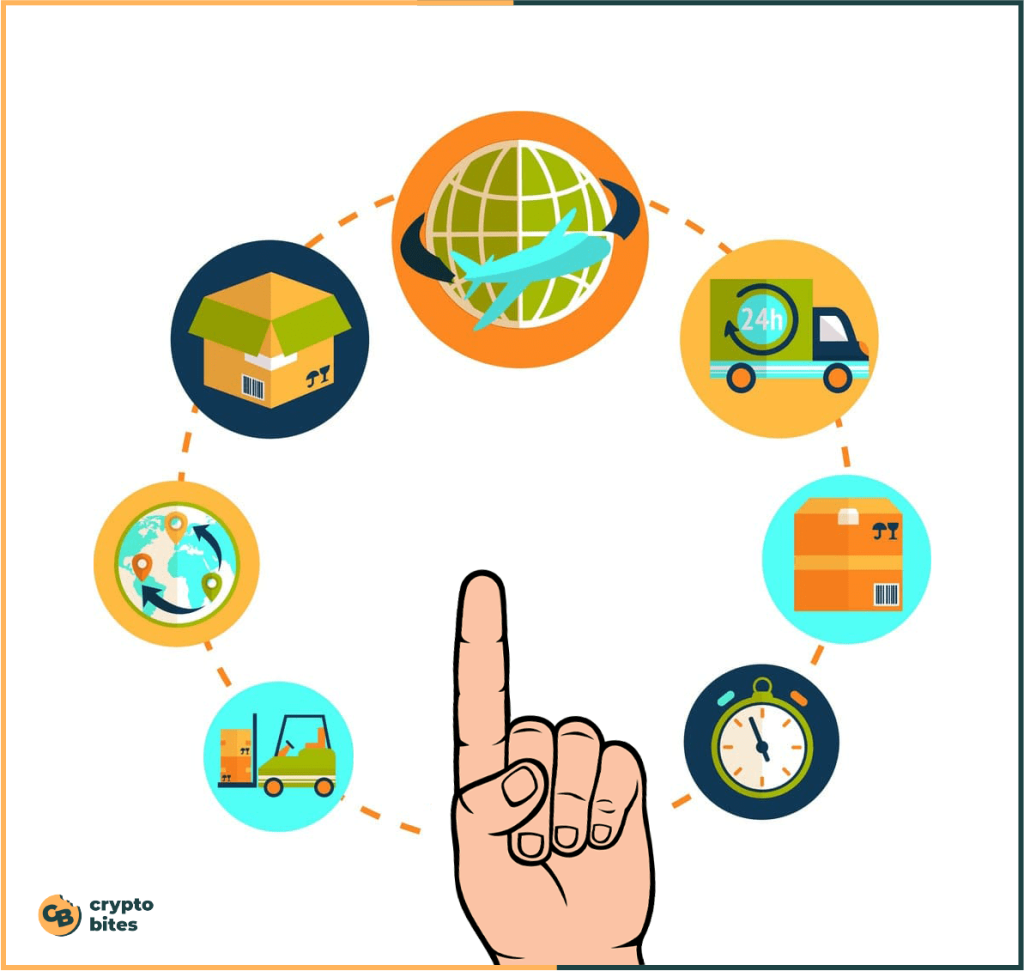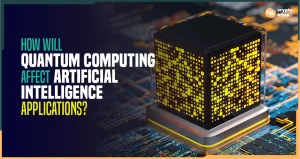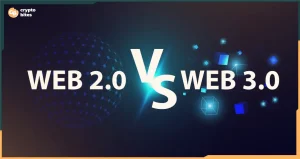
How Blockchain Will Change The World Forever
If you’re not familiar with blockchain technology, you might have missed out on one of the most groundbreaking innovations of our era.
Blockchain is considered one of the most revolutionary technologies today.
It holds the potential to completely transform various aspects of our world.
It’s more than just a piece of technology; it’s a concept that could reshape how businesses operate globally.
To stay current, it’s essential to understand the basics of blockchain technology.
Think of blockchain as being in its early stages, similar to the internet in the 1990s.
However, its impact could be just as significant, if not more so.
Unlike eCommerce or social media, blockchain isn’t just another application of the internet; it’s a fundamental technology that runs parallel to it.
Experts believe that blockchain could dramatically change our lives over the next 15 years, much like how the internet has transformed society over the past 15 years.
The key idea driving this potential change is decentralization.
The inception of blockchain can be traced back to Satoshi Nakamoto, the pseudonymous creator of Bitcoin.
Bitcoin, the first decentralized cryptocurrency, emerged during the last global financial crisis, adding weight to the significance of blockchain’s discovery.
Already, many large companies are developing their versions of blockchain technology for various purposes.
However, the future trajectory of blockchain remains uncertain.
As we delve into how blockchain might shape the future, we can explore its potential outcomes and implications.
Changes of Blockchain Are Already Underway
Big banks are getting ready for the future. For example, Citibank released a long report about how blockchain will affect the economy.
There’s a prediction that digital currencies, called CBDCs, from major economies could be worth $5 trillion by the end of the 2020s. These currencies could be used by 2 billion people on their phones.
Right now, 90% of central banks are testing virtual currencies in pilot programs.
10 Ways Blockchain Will Change The World
Blockchain technology can transform how we make payments for things.
It can alter how we save money and conduct business.
This tech has the power to bring significant benefits to businesses by making supply chains more transparent, lowering operational risks, and enhancing efficiency.
Big companies like Walmart, IBM, and BHP are already leveraging blockchain to track various items with precision.
Let’s explore 10 ways blockchain will reshape the very world we inhabit.
1. Safe Medical Record Keeping
Blockchain technology is a way to keep financial records safe. It’s like a digital ledger that records transactions securely.
This means all kinds of sensitive information could eventually be stored and managed using blockchain technology.
Before, storing and sharing patient records digitally was tricky for medical providers. There were three main problems outlined in a paper from 2013:
- Inaccessible patient records.
- Privacy of patient data.
- Dysfunctioning shared information of patients.
But with blockchain technology, these problems are getting solved.
Firstly, blockchain allows a single database to be accessed by authorized people, like doctors, insurers, or patients, anytime and anywhere. Plus, they can all understand the format of the data.
A Tel Aviv company came up with a way for patients to control who sees their medical data.
Secondly, blockchain technology makes it easier to keep data private compared to other digital methods.
Lastly, blockchain reduces errors by cutting down on the number of people involved in handling data. It also keeps a permanent record of each transaction.
2. Fintech
FinTech is short for “financial technologies.” It’s different from platforms that deal with cryptocurrencies because it’s mainly used by banks and financial institutions to offer better ways to make transactions.
In FinTech, blockchain technology provides a strong and reliable base for platforms that help with transferring money securely.
For instance, TransferWise, a money-transfer platform, can conduct same-day international currency exchanges with fees up to 90% lower than those of banks.
Similarly, Adyen, a payment platform in Amsterdam, offers an omnichannel checkout app to global companies, enabling them to accept payments in any currency and format.
Fundraising organizations and departments can utilize FinTech-enabled apps to receive and track donations. Crowdfunding platforms also benefit from blockchain technology, gaining added security.
With FinTech, consumers can now use their mobile devices to make payments for goods and services without the security risks faced in the past.
Overall, blockchain-supported FinTech makes the global marketplace more accessible and efficient.
3. Food Inventory Tracking
When we get worried about where our food comes from is usually when there’s a sickness outbreak caused by it.
Food suppliers have to keep track of where the food goes, from the farm to the store or restaurant. This journey involves many stops where things can go wrong with food safety.
Blockchain is being used to track food, which means recording its journey using a special kind of technology.
Big companies like Walmart and others, along with a university and IBM, are working together to use blockchain for food safety.
Their goal is to make sure food stays safe as it moves from place to place.
They’ve already tested this with pork from China and mangoes from Mexico.
They record things like temperature, dates of shipment and delivery, and safety certifications at each stop.
4. Decentralized Identity Systems
Blockchain and web3 are poised to make a big difference in how we manage our online identity and privacy.
Currently, big companies control our online identities, and our data gets collected and sold without our permission.
Blockchain provides a solution with decentralized identity systems.
These systems give people more say over their data and who can see it.
Self-sovereign identity systems can be created, allowing individuals to prove their identity without relying on a central authority.
This shift means better control over our online identities.
It brings more privacy and security since we control who sees our data.
Plus, it makes it simpler for us to prove who we are online.
5. Decentralized Online Marketplace
Decentralization and blockchain can make a big difference in online markets.
Right now, big platforms like Amazon and eBay have a lot of power. They control how much money merchants pay to sell things.
But with blockchain-based marketplaces, things could change.
A decentralized marketplace means no platform fee.
This means merchants alone would have a say in their costs and fees. This means no middleman, and lower prices for buyers.
6. Supply Chain Management

Blockchain technology can enhance how supply chains work. It creates an unchangeable record of all actions and transactions in a supply chain.
This allows us to monitor the flow of goods and materials in real-time, ensuring responsible handling.
By using blockchain, we can cut down on waste and make supply chains more efficient.
This also contributes to a greener and more sustainable approach to supply chain management.
7. Healthcare
Blockchain technology in healthcare can enhance patient care and cut costs.
One way is by creating a secure system to store and share patient records, making treatment more efficient.
Additionally, it can track pharmaceuticals in the supply chain, ensuring proper handling and decreasing the chance of counterfeit products.
8. Asset Protection
Imagine you own a car or a piece of land. You want to make sure that nobody can mess around with the records showing that you own it.
That’s where blockchain comes in.
When you buy or sell something like a car or land, you have to transfer ownership.
instead of relying on traditional paper records, blockchain stores all those ownership records in a digital ledger.
Because blockchain is transparent, once your ownership is recorded on it, anyone can see the history of transactions related to that asset. As a result, you’ll have a clear, transparent history of ownership.
9. Government
Blockchain technology has the potential to change how governments work.
It can make government records, like voter rolls and property ownership records, easier to track and manage.
Using blockchain could also make voting and elections more secure and transparent.
This could lower the chances of fraud and increase trust in the electoral process.
10. Human Resources
Blockchain has a huge role to play in the human resources sector. How?

To make paying employees, contractors, and vendors easier and safer, companies can use blockchain technology to automate and secure the process.
Blockchain can also help with hiring by storing credentials and transcripts securely.
In fact, many universities are already giving students their records in blockchain format.
And to keep employee information safe, blockchain can encrypt and store it, making sure it can’t be changed and giving a secure way to manage it.
This can also make sure the information is true and accurate.
With blockchain, traditional paper contracts can become digital smart contracts that are transparent and unchangeable, making it easier to enforce terms and penalties.
Final Words
Blockchain and web3 are set to revolutionize the world by promoting decentralization and reducing the need for intermediaries.
At present, many online platforms rely on a few big companies like Google, Meta, and Amazon to oversee their operations.
These companies wield significant control over the data and transactions on their platforms.
But with blockchain, we can create platforms that aren’t under the control of any single entity.
Instead, they operate using a network of computers that work together to validate and record transactions.
This decentralization brings more transparency, security, and independence to these platforms, and changes our reliance on Big Tech, which inadvertently, will change the world forever.




